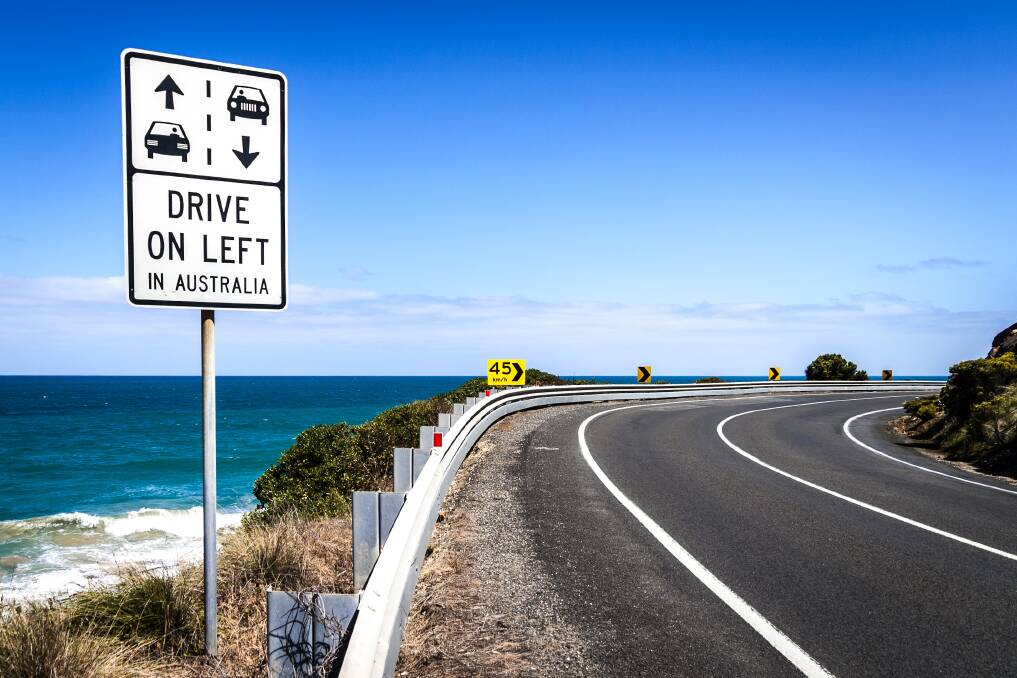Seven Spending Hacks To Help You Save Up For Your Next Getaway

This is branded content.
There are few more exciting experiences than planning a holiday, but actually going on vacation is one of them.
If you want to make your dream of spending a week sipping cocktails on the Amalfi Coast or backpacking across Southeast Asia a reality, you'll need to save some money.
Thankfully, with a little savvy spending and budgeting, saving up for your next getaway could be easier than you may expect it to be.
And yes, we really do vouch for the power of spending (particularly credit spending) when you're looking to save for a holiday.
For instance, many of the best credit cards for points or even business credit cards offer exclusive rewards in exchange for air miles.
The opportunity to earn frequent flyer points can help you enjoy some serious savings when planning your next holiday.
Alongside credit spending, however, there are some other valuable spending and budgeting hacks out there that can help you reach your getaway budget goals.
Follow these seven tips to save enough money for that dream holiday.
1. Set up a vacation fund
If you want to splurge on a vacation, you'll want to make sure it won't affect other areas of your life. A smart way of doing this is by setting up a vacation fund. Set aside a little money every month and build up towards your goal.
In order to calculate your target amount, you'll want to take into account things like airfare, accommodation, daily expenses, travel insurance and any extra you'll need to pay for guided tours or for access to tourist spots.
2. Use a business credit card
Most airlines offer frequent flyer rewards in order to encourage customers to fly with them. Often, they'll also tie up with business credit card providers, which allows you to utilise your miles through one of your card's reward programmes.
Remember that frequent flyer miles often have an expiry date, so make sure to keep on top of this and to redeem your miles before they go to waste.
3. Save up in other areas
A big part of managing one's finances is recognising that being fiscally responsible involves tradeoffs. You'll want to make sure that your leisure expenses don't impact the more important areas of life.
Planning a vacation might mean having to cut back on other unnecessary expenses. You might need to delay replacing your car with a brand new one, hold off on buying that luxury handbag or make an effort to cut down on eating out.
4. Know when to book your flight
Airline tickets make up a big chunk of the expenses that go into travelling. Booking your flight at the right time can save you loads. Booking too early isn't ideal, but neither is buying tickets two days before flying. You'll want to get tickets a little in advance, which obviously involves some planning on your end.
There's a lot of conflicting information on the subject of when to buy tickets, but the ideal time seems to be between 4 months to 3 weeks before the flight.
5. Get into thrifting
Buying second hand is a great way to save money on essentials like clothes and furniture. You'll find lots of stuff that's in perfectly usable condition for a fraction of what you would've paid at the original retail price.
The great thing about thrifting is that you never know what you'll find. Thrifting can happen online, too. Hop on one of the many second hand markets on the internet and see what you can find.
6. Travel off-peak
There are times of the year when tourists flock to certain places. This period of greater tourist traffic is rightfully called a destination's peak season, and it can naturally be accompanied by greater rates for flights and accommodation.
Peak seasons usually revolve around public holidays. Everything, from flights to hotels to paid tourist destinations, is more expensive at times like this. This is due to simple supply and demand: the more people there are who are willing to pay for something, the more expensive it'll be.
Keep in mind, however, that peak season differs from place to place. Peak travel seasons for destinations in the northern hemisphere are likely to be between June and September to coincide with their summer season, whereas peak season for travel in Australia is more likely to be over December and January. But for destinations where people travel for winter sports or even for particular seasonal holidays, peak season activities and pricing can look a little different. So it's helpful to do some research on your destination's peak season while planning your trip.
7. Travel in a group
Travelling with other people is a great way to save on accommodation. If you choose to go down the Airbnb route, you'll get to split the bill with those you're travelling with. Paying for half of a two-bedroom unit will almost always be cheaper than paying for a studio or a one-bedroom apartment on your own.
If you're a parent or a minor, travelling with your family is an obvious choice. If you live on your own, you can travel with friends, or find people online who want to visit the same place (but be careful!).
~
That dream vacation of yours can be a reality, provided you save up for it. Sometimes, you'll need to make small changes to your lifestyle. However, there are also little hacks you can do to save a little extra cash at no personal cost to yourself, including applying for the right credit cards and booking your flight at the right time.
By following these seven tips, you'll be lying on a lounge chair along the Mediterranean or hiking the alps in no time!



